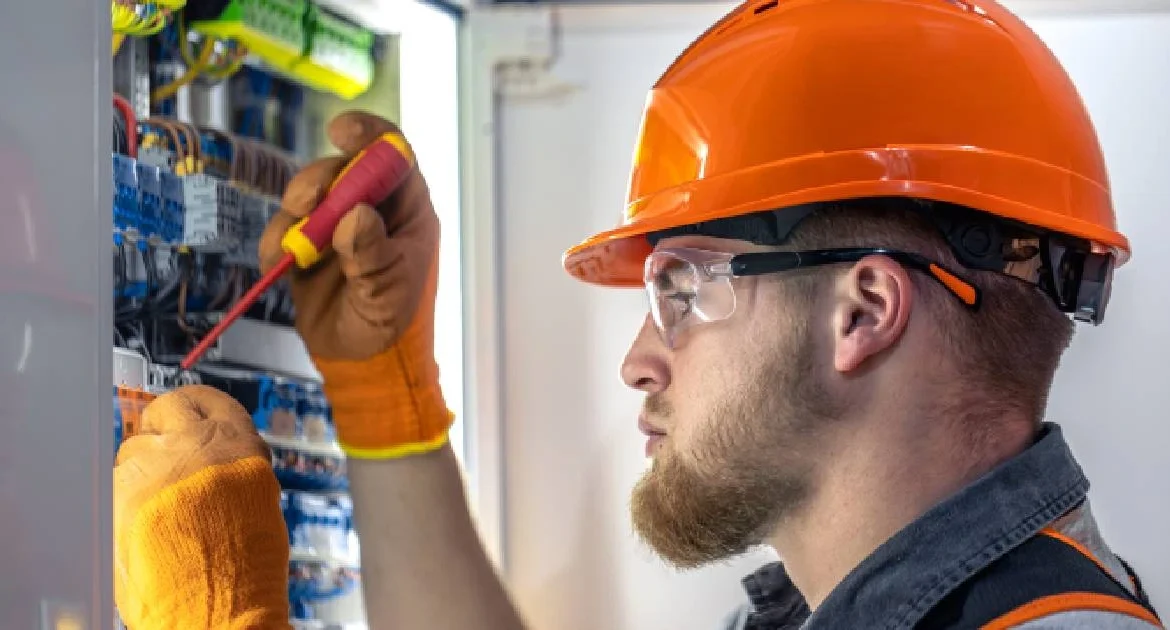An Electrical Installation Condition Report (EICR) is an essential document that assesses the safety and functionality of electrical systems in residential, commercial, and industrial properties. It ensures that electrical installations meet regulatory standards and helps identify any potential hazards that could lead to fire, electric shocks, or system failures.
Whether you are a homeowner, landlord, or business owner, understanding the importance of an EICR is crucial for maintaining electrical safety. This guide covers everything you need to know about Electrical Installation Condition Reports, including what they are, why they are needed, how they are conducted, and their legal implications.
What is an Electrical Installation Condition Report (EICR)?
An Electrical Installation Condition Report (EICR) is a formal document issued after a thorough inspection of a property’s electrical system. It is carried out by a qualified electrician or electrical engineer to evaluate the condition of wiring, circuits, fuse boards, and other components. The purpose of an EICR is to ensure that the electrical installation is safe for continued use and to highlight any remedial work required.
The EICR is sometimes referred to as a Fixed Wire Test or a Periodic Inspection Report (PIR). It provides a comprehensive assessment of the system’s integrity, identifying defects, deterioration, and non-compliance with current safety standards.
Why is an EICR Important?
- Ensures Electrical Safety
Faulty electrical installations pose a serious risk of electrocution and fire hazards. An EICR helps detect problems before they become dangerous. - Legal Compliance
In the UK, landlords must obtain an EICR for rental properties every five years to comply with regulations such as the Electrical Safety Standards in the Private Rented Sector (England) Regulations 2020. Businesses must also meet health and safety obligations under the Electricity at Work Regulations 1989. - Identifies Electrical Defects
Electrical wear and tear can occur over time, leading to insulation breakdown, overloaded circuits, and outdated wiring. An EICR highlights these issues and recommends corrective actions. - Reduces Fire Hazards
Electrical faults are one of the leading causes of domestic fires in the UK. Regular inspections help prevent such risks by ensuring electrical components are functioning safely. - Enhances Property Value
A valid EICR assures potential buyers and tenants that the electrical system is in good condition, making the property more attractive.
Who Needs an EICR?
- Homeowners: To ensure the safety of their electrical system and comply with mortgage or insurance requirements.
- Landlords: Legally required to conduct an EICR every five years for rental properties.
- Businesses: To comply with the Health and Safety at Work Act 1974 and reduce workplace hazards.
- Public Buildings: Schools, hospitals, and government buildings require regular inspections to maintain safety standards.
What Does an EICR Involve?
An Electrical Installation Condition Report involves a detailed inspection of the electrical system. The process includes:
- Visual Inspection
– Checking for signs of damage, wear, or outdated wiring.
– Identifying exposed wires, cracked sockets, or overloaded circuits. - Testing of Electrical Components
– Examining the fuse board (consumer unit) for compliance with regulations.
– Testing circuits and wiring for continuity, insulation resistance, and polarity.
– Checking earthing and bonding to ensure protection against electric shocks. - Identification of Faults and Issues
– Highlighting defects such as overheating cables, incorrect installations, or loose connections.
– Assigning fault codes to indicate severity.
What Happens If an EICR Identifies Issues?
If the Electrical Installation Condition Report highlights any C1 or C2 issues, the electrical system is deemed unsafe. The necessary repairs must be carried out immediately.
For rental properties, landlords must provide tenants with a copy of the EICR and complete any required remedial work within 28 days. A follow-up inspection will confirm that the issues have been resolved.
Legal Requirements for Landlords
Since July 1, 2020, UK landlords must comply with new regulations regarding electrical safety:
- An EICR must be carried out every five years.
- A copy of the report must be provided to tenants and local authorities if requested.
- Any urgent electrical work must be completed within 28 days.
- Non-compliance may result in fines of up to £30,000.
These regulations apply to assured shorthold tenancies (ASTs) and houses in multiple occupation (HMOs).
How to Choose a Qualified Electrician for an EICR
When selecting an electrician for an EICR, ensure they are:
- Registered with a Competent Person Scheme (e.g., NICEIC, NAPIT, Stroma).
- Fully qualified and experienced in electrical testing.
- Insured for public liability and professional indemnity.
- Able to provide certification and recommendations for remedial work.
Avoid using unregistered electricians, as this can lead to inaccurate reports and unsafe installations.
Common Electrical Issues Found in an EICR
- Outdated Consumer Units – Older fuse boxes may lack modern safety features like RCD protection.
- Insufficient Earthing and Bonding – Can lead to electric shocks.
- Overloaded Circuits – Too many devices on one circuit cause overheating.
- Deteriorated Wiring – Damaged or aged cables increase fire risks.
- DIY Electrical Work – Unqualified modifications can result in dangerous installations.
An Electrical Installation Condition Report (EICR) is a vital assessment for ensuring electrical safety in homes, rental properties, and commercial buildings. It identifies potential hazards, helps prevent electrical fires, and ensures compliance with UK regulations.
Landlords and business owners must keep up with their legal responsibilities, while homeowners should consider regular EICRs to maintain a safe living environment. By hiring a qualified electrician and addressing any faults promptly, you can protect your property and the people within it.
If you haven’t had an EICR conducted recently, now is the time to book an inspection and ensure your electrical system is safe and compliant.



Leave a Reply
You must be logged in to post a comment.